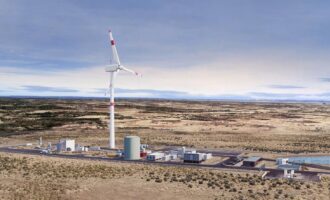MOL announces purchase of Eni’s Hungarian unit
Hungary’s MOL Plc. has agreed to buy the Hungarian unit of Italy’s Eni International B.V., Eni Hungaria, for an undisclosed sum. The deal is subject to regulatory and other clearances.
Ferenc Horváth, MOL Group’s downstream executive vice president, said that this latest acquisition is “yet another important step for our downstream business as it will increase the markets for our refineries, significantly elevate our fuel volumes going through our network and ensure further overall margin capture.”
Eni Hungaria manages 183 Agip-branded service stations in Hungary, including dealer-owned sites, as well as wholesale activities in the country. Eni’s wholesale lubricants business in Hungary is not included in the deal.
The acquisition is in line with MOL Group’s strategy to extend its presence and increase its retail market share within the supply radius of its core refineries, the company said in a filing with the Budapest Stock Exchange.
The deal includes Eni Hungaria’s retail station business, which includes 108 company-owned service stations, and wholesale activities. MOL said the acquisition is a unique opportunity as it “includes key retail positions and strengthens our position in and around Budapest. “
MOL has been on a buying spree, having just completed the acquisition of Eni’s Czech and Slovak downstream business in July, which included 125 service stations in the Czech Republic and 41 service stations in Slovakia. In February, it completed the acquisition of Eni Romania, which included 42 gas stations, thereby increasing the number of MOL-owned gas stations in Romania to 201.
MOL is an integrated, independent, international oil and gas company, with activities in more than 40 countries and a workforce of 27,000 people. It has production activities in eight countries and exploration assets in 14 countries. MOL operates four refineries and two petrochemicals plants, under integrated supply chain management, in Hungary, Slovakia and Croatia, and owns a network of 2,000 service stations across 11 countries in Central and South Eastern Europe.
echo '








